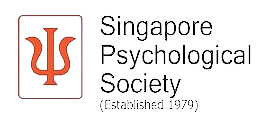Compassion Focused Therapy (CFT)
Compassion Focused Therapy (CFT) is a form of psychological therapy that takes on an integrative and biopsychosocial approach, which draws on neuropsychological, cognitive-behavioural, social and attachment theories
What Is Compassion Focused Therapy (CFT)?
Have you ever noticed how you treat yourself? Is it the same as how you would treat your friend?
For many of us, we tend to treat others with more kindness and compassion than we would show ourselves. This is especially true for people who struggle with self-criticism and shame, which are associated with low self-esteem and chronic stress, as well as higher rates of mental health difficulties such as depression and anxiety.
Compassion Focused Therapy (CFT) is a form of psychological therapy that takes on an integrative and biopsychosocial approach, which draws on neuropsychological, cognitive-behavioural, social and attachment theories (Gilbert, 2014, 2017).
It is designed to help individuals with high levels of self-criticism, shame and difficulties with self-compassion.
What Compassion Focused Therapy Helps With

CFT helps us to cultivate a more self-caring and self-compassionate stance and build a more balanced emotion regulation system, which can improve our overall well-being.
It is transdiagnostic, which means that it aims to target underlying processes that are common across a range of mental health conditions.
Indeed, CFT has been shown to be beneficial for individuals struggling with shame and self-criticism (Gilbert, P. & Procter, S. (2006)) and a wide range of mental health conditions including depression, anxiety, psychosis, trauma, substance abuse, and eating disorders (Petrocchi, N., et al., (2024)).
How CFT Works
CFT involves understanding more about how our brains work and developing a more compassionate self. It helps us address the inner critic that maintains unhelpful thoughts and behaviours, and helps us to stop being our own worst enemy.
With CFT, we can learn to face challenges with kindness and support instead of self-judgement and self-blame.
CFT is based on the idea that we have an emotion (affect) regulation system that comprises threat, drive and soothe systems.
- Threat system: Our internal warning system that is activated when we are faced with threat or danger. It is often associated with feelings of anxiety, anger, shame and disgust.
- Drive system: Focuses on doing and achieving, and propels us towards potentially useful goals, rewards and resources. It is associated with feelings of excitement, desire and pleasure.
- Soothe system: Helps to downregulate our threat and drive system, and facilitates feelings of calm, safety and connection.
The aim here is to work on balancing the three systems, including learning to further develop and activate our soothing system. This involves the application of specific experiential compassion-focused exercises and techniques such as guided imagery, mindfulness, and chair work to to help us develop key aspects and attributes of compassion.
How Can Us Help You?

Experienced Therapists
Our processes and quality assurance is led by Dr Emma Waddington, Senior Clinical Psychologist and Founder of Us Therapy, with over 20+ years of experience in helping individuals in Singapore.
Holistic & Personalised Approach
Our clinicians draw from various therapeutic models to create a holistic approach. At Us, we have seen hundreds of clients and we recognise that each individual is unique. Our approach is tailored to you but always includes customised treatment plans and integrative techniques.
Thorough Assessment
At Us, we pride ourselves on our comprehensive assessment processes. We will undergo a thorough assessment process with you in your first sessions before we come up with a plan for your therapy.
Our Therapists
Here are the therapists who work using this model
What To Expect
Our therapists will support you and your partner through the following process:
Initial Consultation – A Space to Be Heard
The first session is all about getting to know you. It is a conversation—one where you can share what is been on your mind, what has been feeling difficult, and what you would like support with. Your therapist will ask questions about your background, experiences, and goals, but there is no pressure to answer any questions—just a safe space to begin.
Questionnaires & Onboarding Surveys – Understanding the Full Picture
To help tailor therapy to your needs, you may be asked to fill out some brief questionnaires before or after your first session. These can give insight into things like mood, stress levels, relationship patterns, or coping strategies. They are not tests—just tools to help your therapist understand how best to support you.
Individual Therapy Sessions – Your Journey at Your Own Pace
Each session is a step forward in your journey. Therapy is not just about talking—it is about discovering new ways to navigate life’s challenges, make sense of emotions, and feel like you are getting the most out of your life. Depending on your needs, sessions may focus on:
- Exploring patterns of thought and behavior
- Understanding past experiences and their impact on the present
- Developing practical coping tools
- Strengthening emotional resilience
Feedback Sessions – Reflecting and Adjusting
After the first few sessions (or after assessments), a feedback session provides space to reflect on how therapy is going. This is a chance to talk about what has been helpful, what you would like more of, and how therapy can continue to best serve you.
Intervention – The Heart of Therapy
Intervention is where meaningful change happens. Every therapy journey is unique, and the approach will be shaped around what works best for you. Some common approaches include:
🌱 Cognitive Behavioral Therapy (CBT) – Helping to identify and shift unhelpful thought patterns, reduce anxiety, and develop healthier ways to cope and new patterns of behaviour.
🧠 Schema Therapy – Deep, transformational work to uncover long-standing patterns that might be keeping you stuck, often rooted in early life experiences.
💙 Acceptance and Commitment Therapy (ACT) – Learning to handle difficult emotions with self-compassion and move towards what truly matters in life.
🌊 Eye Movement Desensitization and Reprocessing (EMDR) – A powerful approach for healing trauma and distressing memories, helping the brain reprocess them in a way that feels less overwhelming.
🧘 Mindfulness-Based Approaches – Building self-awareness, grounding techniques, and ways to manage stress and emotions with greater ease.
Therapy Approaches
The best type of therapy for men often depends on individual needs and preferences. Common approaches include:
Cognitive-Behavioral Therapy (CBT)
Focuses on understanding and changing unhelpful thought patterns and behaviors. Together with your therapist you will uncover your unhelpful thinking styles and find more workable and effective ways of being that are aligned with your values and the life you want to live.
Psychodynamic Therapy
Delves into past experiences and unconscious processes to understand present challenges. Findings the links between early experiences and current challenges can help to make sense of unhelpful behavioural patterns.
Fees
Individual Counselling Rates
Clinician type
Fees and Duration
Clinic Founder
$310
Principal Psychologist
$290
Senior Clinical Psychologist
$262
Educational Psychologist
$262
Clinical Psychologist
$236
Counsellor
$170
Expressive Arts Therapist
$170
Associate Psychologist
$130
Phone calls / Emails
Clinicians rate pro-rata (10 Mins)
Testimonials
Having undergone therapy with various centres, Us Therapy has been my favourite experience thus far.
I love the vibe of the place - homely, comfortable and doesn’t feel too clinical
The team is really very helpful, whether it be the receptionist (person responding to my whatsapp) or my therapist :")
We are very happy with Dounia. She is consistent and cares about my son. She takes time to treat him and listen to me when I have questions.
I like that the therapists can be flexible on the treatment approach and are open to involving parents in treatments like CBT.
Overall, I'm quite happy. I feel Ariel is supportive and patient with me, even when I keep going back to the same topics over and over.
Emma is a lifesaver. I feel blessed to have her as my therapist.
The entire booking process and experience here was smooth and hassle-free. Special thanks to the lady at the recep who patiently entertained my queries. And thank you Dr Marie-Claire for providing a safe environment to process my feelings.
Therapy with Maheen helped me a lot and I am very grateful for her support! Thank you!
Esther Seow is great: very good rapport














